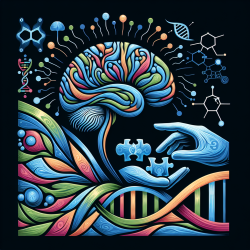Introduction
In the realm of online therapy, especially for children, evidence-based practice is paramount. As practitioners, staying informed about the latest research and policy changes is crucial for delivering the best outcomes. One such area of interest is the updated guidance on organ and tissue donation after medical assistance in dying (MAiD), as outlined in the 2023 research article by Wiebe et al. This blog explores how insights from this research can enhance your practice, encouraging a deeper dive into the subject matter.
Understanding the Research
The research conducted by Wiebe and colleagues (2023) provides a comprehensive update on the policies surrounding organ and tissue donation after MAiD. The study assembled 63 experts from various fields, including critical care, organ donation, and bioethics, to address the legislative changes impacting donation practices. The recommendations aim to align policies with current Canadian legislation, ensuring ethical and effective practices.
Key Recommendations and Their Implications
The updated guidance includes two updated recommendations and eight new ones, focusing on areas such as referral to organ donation organizations, consent, and MAiD procedures. Here are some key points:
- Referral and Consent: All Track 2 patients (those whose natural death is not reasonably foreseeable) should be referred to organ donation organizations for information sharing, ensuring informed consent is obtained.
- Directed and Conditional Donation: Policies should be developed for directed deceased donation, aligning with living donation principles.
- MAiD Procedures: Coordination with substitute decision-makers (SDMs) is crucial for Track 1 patients (those whose natural death is reasonably foreseeable) who lose capacity.
- Healthcare Professional Education: Specialized training and support are essential for professionals involved in donation after MAiD.
Application to Online Therapy Practice
While the primary focus of this research is on organ donation, the principles of informed consent, ethical practice, and comprehensive policy guidance are directly applicable to online therapy. Here’s how practitioners can integrate these insights:
- Informed Consent: Just as in organ donation, obtaining informed consent in online therapy is critical. Ensure that clients and their guardians fully understand the therapy process, benefits, and potential risks.
- Ethical Practice: Align your practice with current legislation and ethical guidelines. Regularly update your knowledge to reflect changes in policies that may impact therapy delivery.
- Professional Development: Engage in continuous education and training to enhance your skills, similar to the specialized training recommended for healthcare professionals in organ donation.
Encouraging Further Research
For practitioners eager to deepen their understanding, exploring the original research can provide valuable insights. The intersection of policy, ethics, and practice is a fertile ground for further investigation. Consider the following steps:
- Review the full research article to understand the detailed recommendations and their rationale.
- Participate in forums or workshops focused on policy updates and their implications for practice.
- Collaborate with colleagues to discuss and implement best practices based on the latest research.
To read the original research paper, please follow this link: Deceased organ and tissue donation after medical assistance in dying: 2023 updated guidance for policy.










